Western amnesia on WWII as NATO replicates Nazi Germany
Finian Cunningham (born 1963) has written extensively on international affairs, with articles published in several languages. Originally from Belfast, Ireland, he is a Master’s graduate in Agricultural Chemistry and worked as a scientific editor for the Royal Society of Chemistry, Cambridge, England, before pursuing a career in newspaper journalism. For over 20 years he worked as an editor and writer in major news media organizations, including The Mirror, Irish Times and Independent. Now a freelance journalist based in East Africa, his columns appear on RT, Sputnik, Strategic Culture Foundation and Press TV.
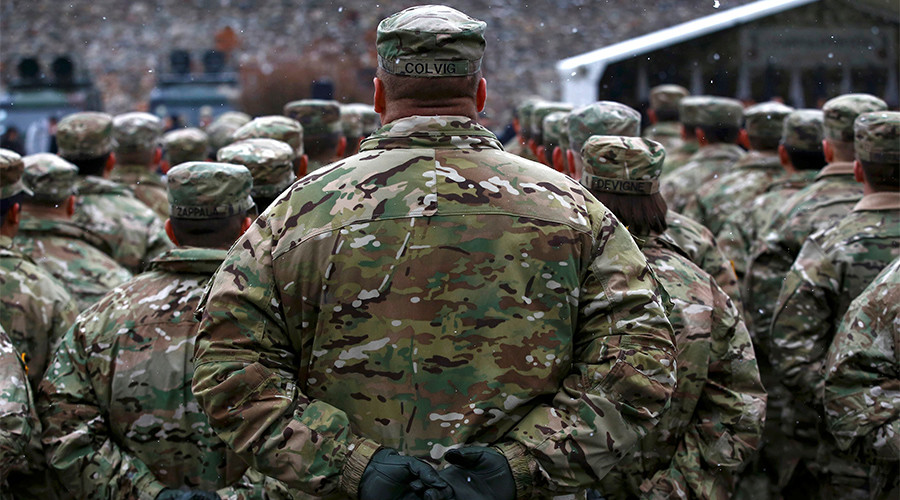
NATO’s biggest buildup in Europe since the Cold War was met with official cheers in Poland and approving Western media coverage this week, but lack of concern in Western public discourse suggests a collective amnesia towards the continent’s horrific past.
Up to 4,000 US troops and hundreds of Abrams tanks and Bradley armored vehicles rolled into Poland after disembarking in Germany last week. Most of the soldiers were from the 3rd Armored Brigade Combat Team out of Fort Carson, Colorado. They represent the US army’s best assault units.
It is but the latest military escalation since the US launched Operation Atlantic Resolve with NATO partners in April 2014. That operation is said to be a result of the Ukraine conflict, which Washington and allies blame on Russian interference.
US commander Colonel Christopher Norrie this week said: “The main goal of our mission is deterrence and prevention of threats.”
Yesterday was “a significant moment in European deterrence & defense” as US rotational brigade crossed fromto
goo.gl/1a8cBT
This view was echoed by Poland’s defense minister, Antoni Macierewicz, who claimed the military reinforcements would check alleged Russian interference in Europe.
“Russia’s veto power in Central Europe, in Poland, has ended once and for all,” said Macierewics, who has been an ardent advocate of NATO expansion in the region.
After nine months of exercises in Poland, the US troops will be rotated to the Baltic States of Lithuania, Estonia, and Latvia, as well as to Bulgaria and Romania.
The claims of “deterrence” and “defense” for the US-led military escalation on Russia’s borders, articulated by Washington officials and European governments, are amplified without question by Western news media.
Polish and Baltic politicians seem to thrive on paranoia toward Russia, fearing a revanchist Soviet-style invasion in spite of repeated declarations by Moscow that it has no aggressive designs on its Western neighbors.
#Krakow greets US army troops that have arrived in #Poland to strengthen#NATO's eastern flank. #alliedstrong
The conflict in Ukraine, and earlier in Georgia in 2008, can be arguably accounted for by US and European meddling in the internal affairs of these countries. To blame those conflicts solely on Russia is misplaced to say the least. Yet that dubious premise is then used to “justify” the escalation of NATO forces along Russia’s entire Western flank.
Washington, Europe, and the NATO alliance have compounded the cleavage in relations with Russia by spurning dialogue, slapping on several rounds of economic and diplomatic sanctions, accusing Russia of cyber-attacks on electoral systems, and demonizing Russian leaders as “murderers and war criminals.”
Without any evidence, it has become an article of faith among Western officials and media that Russia under President Vladimir Putin has masterminded a malicious plan to smash Atlantic relations, break up NATO, and disintegrate the European Union.
This week, General James Mattis, the nominee for defense secretary in the new Trump administration, told his Congressional confirmation hearing that Russia was the biggest threat to the US-led world order since the Second World War.
The incoming US president, Donald Trump, does not seem to share this antagonistic view on Russia, however. In recent days, he has hinted that he would be prepared to lift US sanctions on Moscow and that he is ready to the meet Putin for talks.
'Very large' base: Over 1,000 soldiers to make up NATO's new international battalion in Latvia on.rt.com/807c
Trump is certainly a breath of fresh air compared with the stale, fetid mentality that, up to now, has dominated in Washington, and hence its European subordinates, in treating Russia as an enemy.
Although the commitment to deploy more US troops in Europe was taken under the Obama administration, one wonders if certain sections of the US establishment are pushing ahead with provocative policy in order to stymie any attempt at detente under the new Trump administration.
Moscow has slammed the latest US troop buildup as a “threat to our security.” Kremlin spokesman Dmitry Peskov said: “These actions threaten our interests, our security. Especially as it concerns a third party building up its military presence near our borders.”
With cogent reasoning, Peskov added: “Any country may and will take a buildup of foreign military presence along its borders negatively. This is exactly how we take it, be it one thousand or ten thousand soldiers, it’s all the same.”
Moscow’s reported invitation to the Trump administration to attend forthcoming peace talks on Syria to be held in Kazakhstan’s capital, Astana, on January 23 – three days after Trump’s inauguration – is a sign that Russia is keeping open the possibility of normalizing relations with the US – despite the provocative military escalation on its borders.
It seems bizarre that Russia’s protests against the relentless consolidation of US military power on its doorstep – including new missile systems in Romania and Poland – are met with apparent agnosticism in the West, if not cynical dismissal for being overblown.
The movement of US troops and tanks from Germany into Poland this week was reported in the Western media as some kind of chivalrous act of American protection of allies.
Europe seems asleep to the danger that such militarism between nuclear-armed forces poses. A continent that sparked two world wars with up to 100 million dead seems unbelievably amnesiac about the danger of conflagration.
A measure of this apparent collective amnesia can be gleaned from the passing of veteran English newspaper journalist Clare Hollingworth, who died this week at the age of 105. Hollingworth published the “scoop of the century” in 1939 when she first reported Nazi Germany’s invasion of Poland, which then sparked the Second World War. The headline of her original report in Britain’s Daily Telegraph on August 29, 1939, read: “1,000 tanks massed on Polish frontier.”
Amid media tributes to the deceased journalist, reference to contemporary events was absent. In the same week that Clare Hollingworth passed away, tanks were again rolling into Poland from Germany, this time driven by American troops. But Western media outlets made no such connection.
‘I hope everyone will keep calm! Tanks don’t create peace’ – German politician on NATO buildup at Russian borders on.rt.com/7zvk
In seeming oblivious isolation from events that triggered World War Two some 78 years ago, we are told by Western media that American tanks are on a “mission of deterrence and prevention of threats.”
Nazi propagandists trotted out the same spurious claims of acting in defense when the Wehrmacht rolled its tanks into neighboring European states.
Russia can evidently see the US-led NATO militarization of Europe objectively for what it is: a threat to stability and a provocation for all-out war.
Why is it that the Western public does not seem to be aware of the unfolding danger? Why does this same public appear to accept official narratives of “acting in defense,” when in reality the developments are so obviously “acting in offense”?
Perhaps we can deduce that this lack of critical thought is due to systematic inculcation and indoctrination by Western governments, servile mass media, and corporate-funded think-tanks, all of whom have huge vested interests in stoking tensions with Russia.
Inculcation and indoctrination in the West? A disbelief towards that claim is simply proof of how effective “perception management” has been orchestrated in the West.
After all, Russian hackers got Donald Trump elected in the US, right? And Russian troops stationed on their soil are threatening Europe, while American troops thousands of miles from their territory amassing on Russia’s borders are “upholding peace”?
There’s a word for such thinking: “amnesia.”

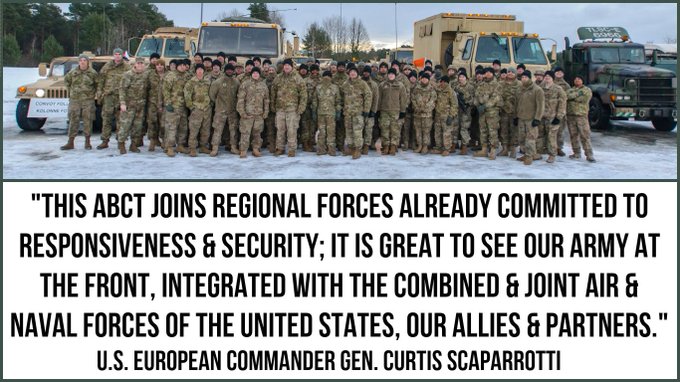

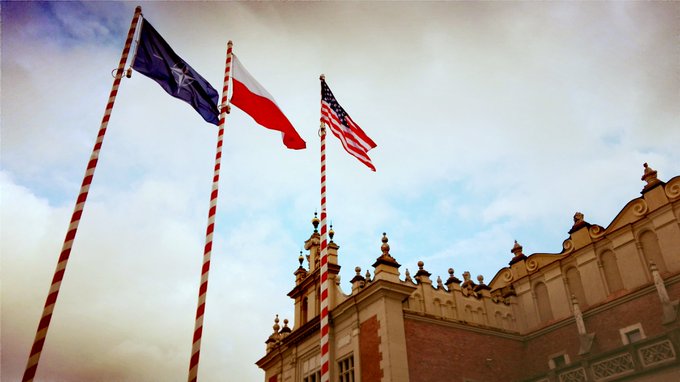



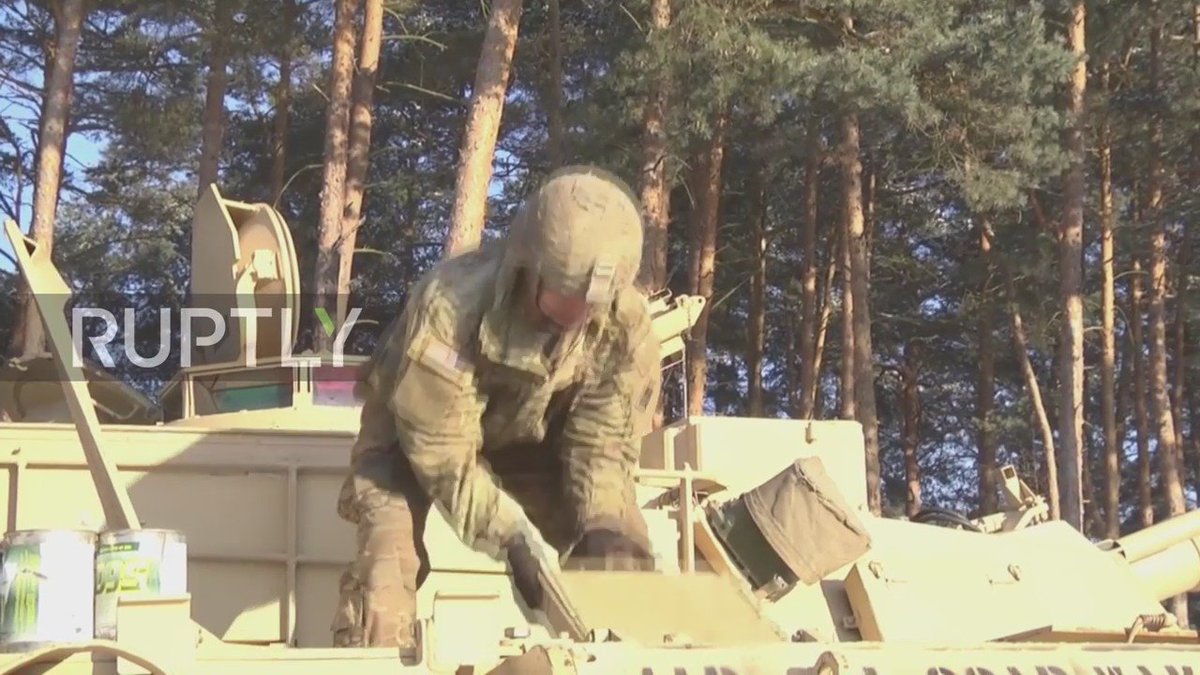
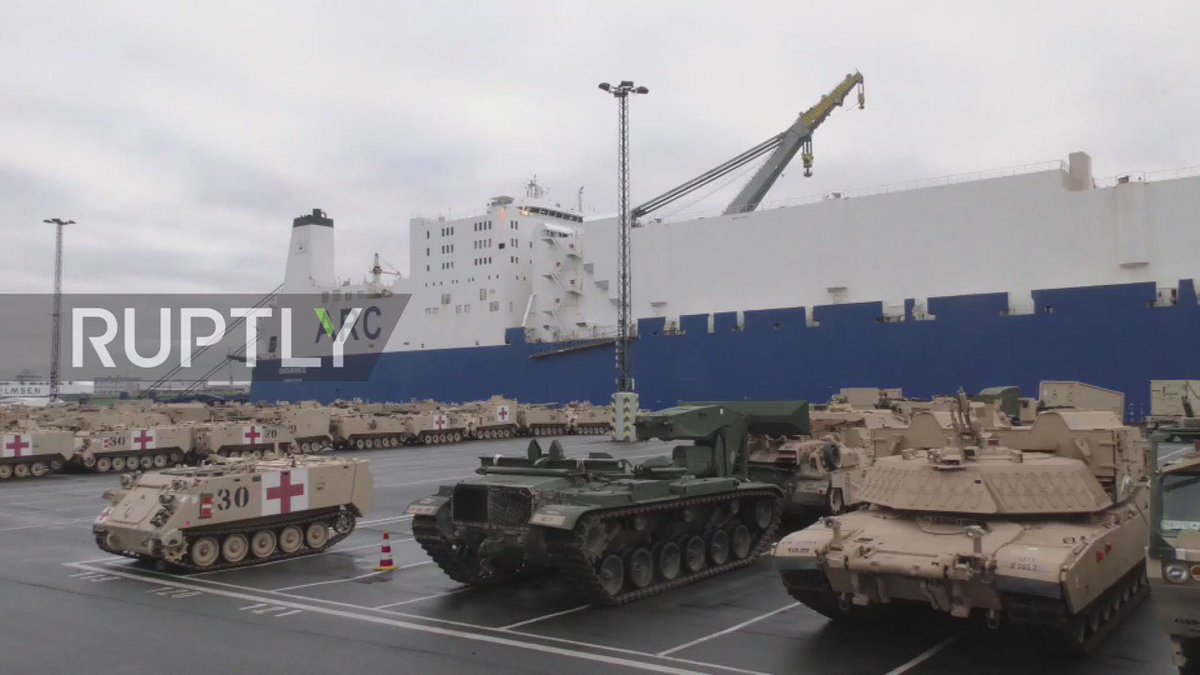

0 Comments:
Post a Comment
Subscribe to Post Comments [Atom]
<< Home